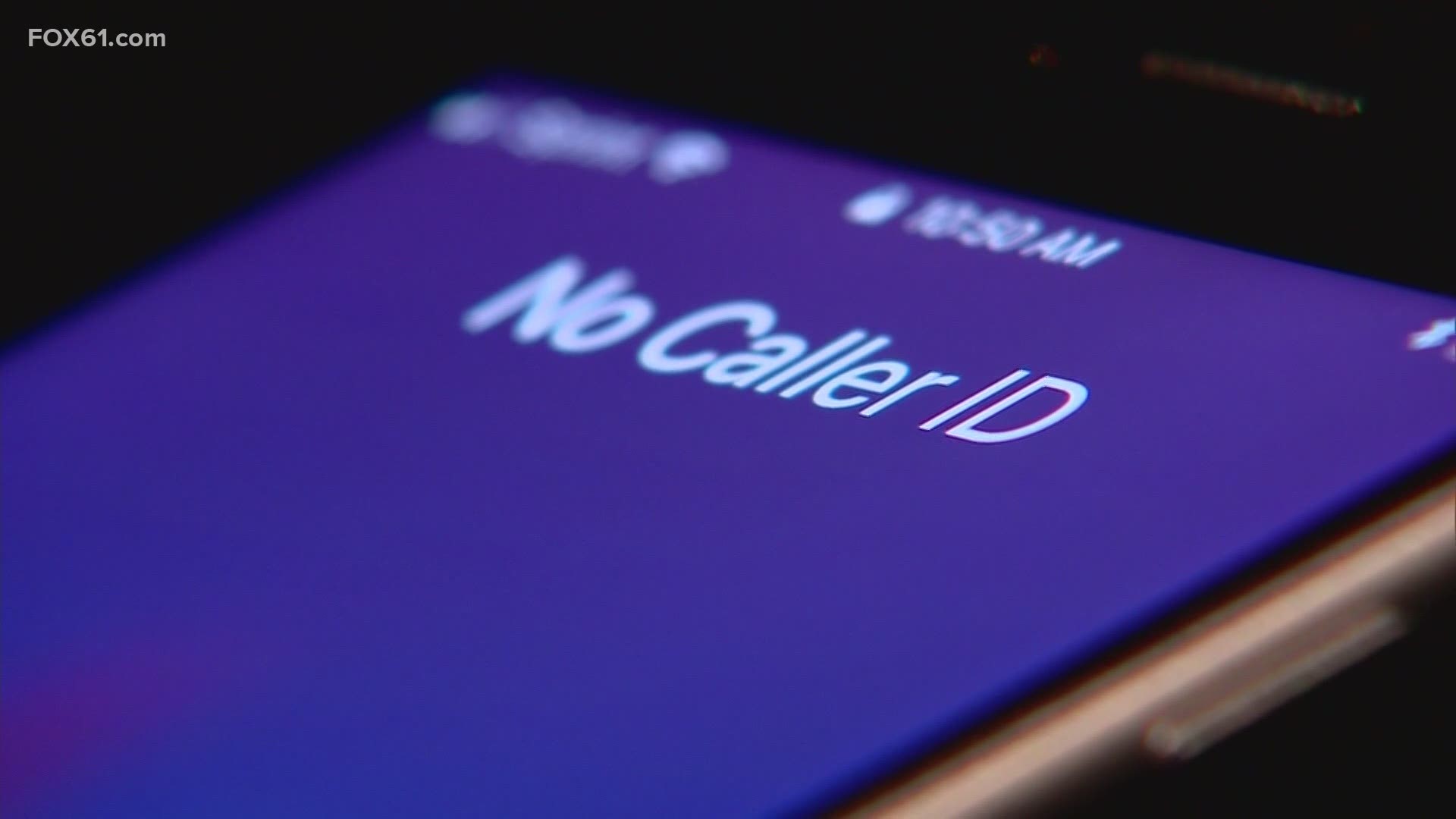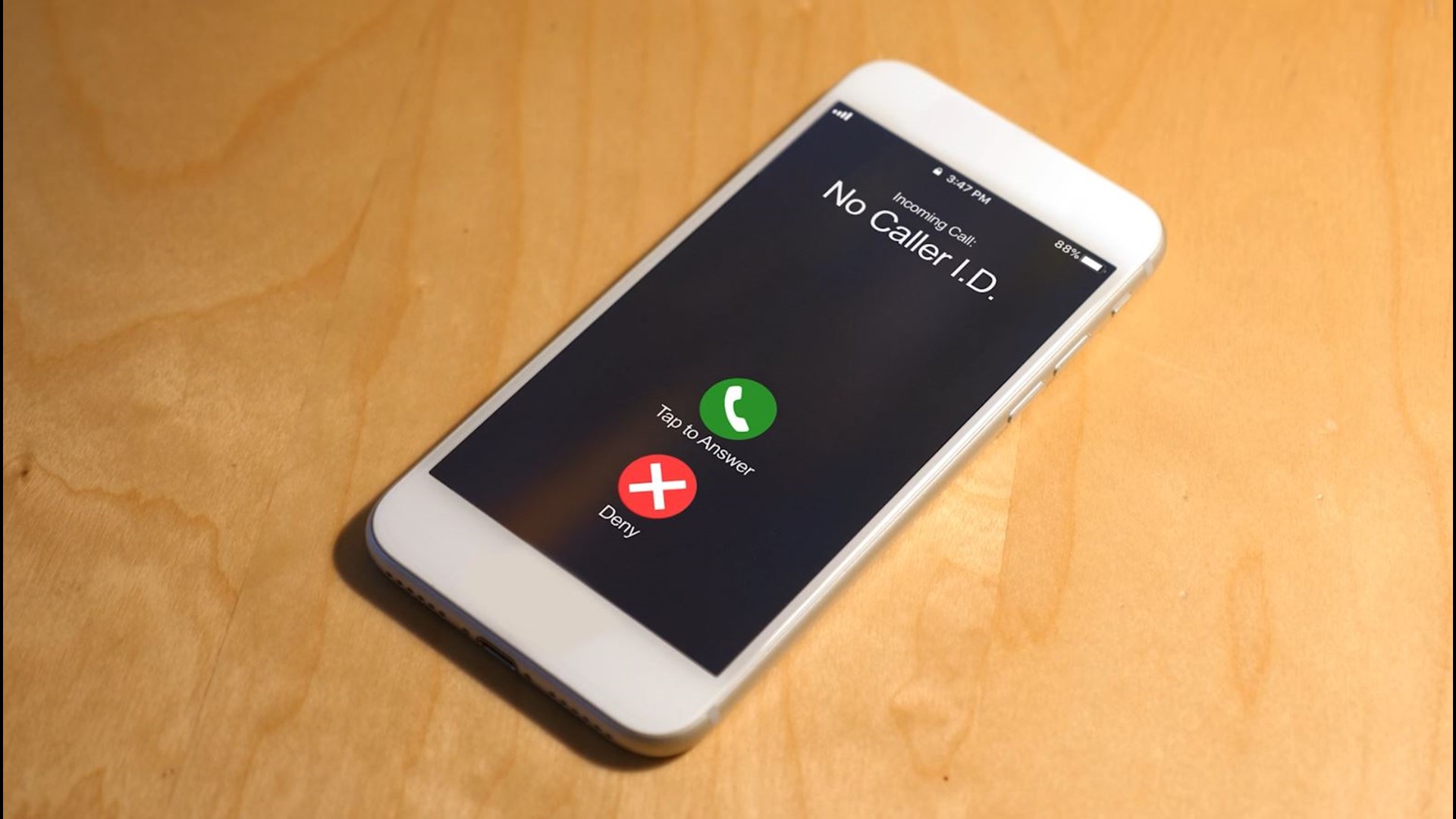HARTFORD, Conn. — Terryville remodeling contractor Jim Petano got an interesting phone call recently.
“I came home from work one evening, phone was sitting on the table in front of me. Phone rings, and it says 'me, and my number, and I’m like, how did I do that?" he recalled.
Petano had been spoofed with his own number by a robocaller.
"Spoofing" refers to the practice of placing a phone call but embedding a false caller id with it.
So, your phone rings, and even though the call is from, say, India, the caller id on your screen looks like it's from your town, or a neighbor – or maybe even your place of work.
Petano got a good chuckle out of his cell but there's a much darker side to spoofing, especially for the elderly.
Eighty-two-year-old Marjorie Jones was one of those elderly victims.
Her granddaughter, Angela Stancik, said Jones was spoofed by a robocall ring based in Costa Rica.
They posed as federal agents and told Jones she had won a huge cash prize. All she had to do to collect was pay the taxes and fees upfront.
Once they got the first payment from her, Stancik says the crooks changed tactics – using fear and intimidation to coerce Jones into sending more.
“They investigate their victims. They find out everything they can about them and they use that against them in the end just to siphon more money from them," Stancik said.
In the end, Jones took her own life, with $69 left in the bank.
Her case is extreme, but not rare.
The AARP says people over 65 make up only one-eighth of the population, but nearly one-third of telemarketing scam victims and experts agree they are particularly vulnerable to spoofing.
RELATED: How do robocalls work?
In 2019, Stancik testified before the U.S. Senate Committee on Aging and now spends much of her time fighting robocall scams and helping people protect their elderly loved ones.
At this point, you might be asking, if so much is known about these robocall operations, and lawmakers in Washington are on the case – why hasn't it stopped?
Well, robocall systems are intentionally and ingeniously designed to evade and thwart an investigation, often routed around the world.
Legal red tape and jurisdictional limitations make it difficult to investigate overseas companies and constant innovation helps robo crooks stay one step ahead of the law.
What Connecticut is doing about robocalls and 'spoofying'
Connecticut Attorney General William Tong compares it to playing "whack-a-mole," but says he has had some success.
Earlier this year, Tong busted a robocall ring called "Associated Community Services."
The ring made more than a billion robocalls to 67 million Americans, he says, pretending to raise money for charity and bilking them out of hundreds of millions of dollars.
Now, Associated Community Services faces fines of hundreds of millions of dollars.
"There's a ton of focus on this," Tong said, " and law enforcement offices like mine are going to hold wrongdoers to account, and we're gonna send them to jail, and we're gonna hold them accountable with huge fines."
Tong said he could use additional resources. And that's where Congress comes in.
In late 2019, Congress passed a bill called the "Traced Act," which requires service providers to implement blocking and authentication systems and increases fines on robocallers.
Connecticut Sen. Richard Blumenthal said he's currently fine-tuning his own legislation called "Robocop," which would provide free blocking technology to every single consumer, and it would also enable caller id authentication.
Blumenthal introduced the legislation two years ago and again last year, but with no luck.
He blames the carriers, which he said are resisting because of the cost of implementing the changes he wants.
Blumenthal and Tong both say they are pressuring telecommunications companies to get on board and offer more protection for the consumer.
The bottom line is, laws against illegal robocalls cannot stop criminals from making them. so protecting yourself and your family is partly up to you.
In part one of the series, we dove into what are robocalls and what makes them so prolific.
In part three of our series, we'll dive deep into protective measures you can take – ranging from getting help offered by your carrier, to behavioral changes you can make, and one small way you can outsmart the criminals.
RESOURCES:
- National Suicide Prevention Hotline - In Crisis call 1(800)273-TALK (8255) or 211 in CT or Crisis Text Line: Text CT to 741741; In an Emergency Call or Text 911
---
HERE ARE MORE WAYS TO GET FOX61 NEWS
Download the FOX61 News APP
iTunes: Click here to download
Google Play: Click here to download
Stream Live on ROKU: Add the channel from the ROKU store or by searching FOX61.



